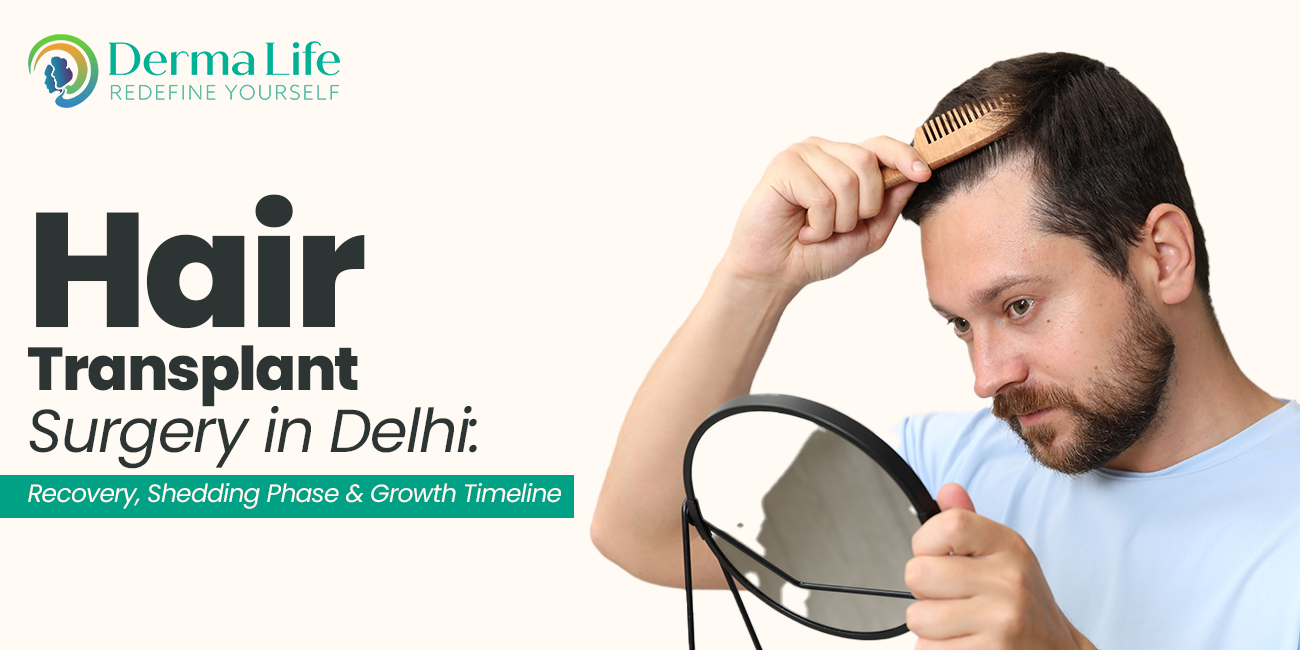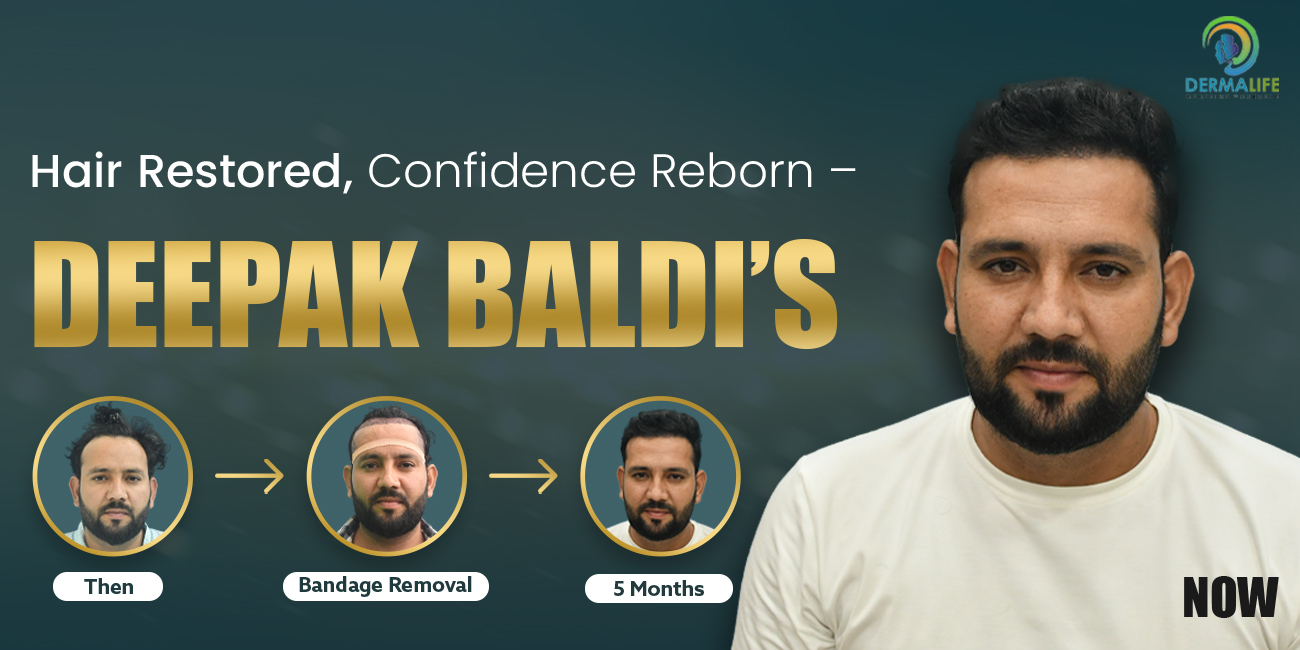Hair loss is unpleasant and can at times be quite humiliating. Most people use their hair as a means of expression or as their crown. Experts state that it’s normal to shed 50–100 hairs per day. On the other hand, lumps of hair loss may indicate a more serious problem if they occur frequently. Stress, medical disorders, and vitamin shortages are a few examples of factors that can impact the health of your hair.
Numerous factors, including genetics, diet, and lifestyle, affect healthy hair growth. To keep your hair healthy and strong, make sure you are getting enough vitamins and nutrients. These are the top seven vitamins that are well-known for improving the condition of hair.
Achieving luscious, healthy hair involves more than just using the right products; it’s also about nourishing your hair from within. Essential vitamins play a crucial role in maintaining strong, vibrant hair.
Knowing about the deficient vitamins will help you select the best vitamins for hair growth that suit your needs. You can find out this information by consulting a healthcare professional who can assess any nutrient deficiencies in your diet and perform blood work. We’ve compiled a list of some of the top vitamins and supplements for hair growth available on the market to suit a range of needs, with the assistance of medical professionals and registered dietitians.
Let us learn more about some supplemental and natural ways for you to get the vitamins you need for healthy hair growth.
Importance of vitamins
Since hair growth involves multiple vitamins and minerals, a multivitamin might be the most practical choice if you have multiple nutrient deficiencies or just want to make sure you’re covered for hair health. Vitamins are necessary for good hair growth and may also help to stop hair loss and thinning. The B vitamins, iron, zinc, biotin, vitamin D, and vitamin E are the best vitamins for hair growth. Vitamins are incredibly beneficial to hair. They can promote cell division, shield hair from damage by free radicals, delay the onset of greying, and support the follicles that initiate new growth.
A healthy, varied, and balanced diet is the best way to ensure that you are getting all the vitamins and nutrients required for healthy hair growth. But as we all know, it’s easier said than done to eat healthily! This is where vitamin roles come in. They help to keep hair follicles happy and healthy so that hair grows more readily.
Let us know what all are the vitamins that are essential for healthy and shining hairs:
- Biotin: Vitamin B7, or biotin, is a substance that promotes the growth of hair follicles by stimulating keratin production. A component of the B-vitamin complex, biotin helps make keratin, a protein that gives hair strands their structure. The B-complex vitamins (B3, B6, and B12) help to improve blood flow to the scalp, which encourages the growth of hair.
The most common type of biotin deficiency is biotinidase deficiency, which is generally uncommon. Numerous foods, such as eggs, meat, fish, nuts, eggs, sweet potatoes, and seeds, contain this vitamin. For adults, a daily intake of 30 micrograms is recommended.
- Vitamin A: The body’s fastest-growing tissue is the hair follicle. Thus, it stands to reason that vitamin A is the ideal catalyst for that development. Your body creates sebum when it absorbs vitamin A. That greasy material hydrates your scalp and helps to maintain the health of your hair follicles. You may experience hair loss if you are deficient in vitamin A.
Foods high in beta-carotene, which is converted into vitamin A, are ideal if you want to increase your intake of vitamin A. Beta-carotene-rich foods include spinach, kale, sweet potatoes, pumpkin, and carrots. It’s also present in milk, eggs, yoghurt, and cod liver oil. For men, a daily dose of 900 mcg for men and 700 mcg for women, of vitamin A is advised.
Vitamin C: One of the primary causes of hair loss is oxidative stress. This happens when our bodies’ levels of antioxidants and free radicals are out of balance, which can cause an electron imbalance that can cause hair loss. Eating vitamin C-rich foods is the answer. Antioxidants in your body prevent hair damage from free radicals by restoring electron balance. In addition to keeping the scales balanced, vitamin C helps your body produce collagen, which delays the onset of grey hair and absorbs iron, which promotes hair growth.
Citrus fruits, peppers, strawberries, tomatoes, and guavas are good sources of vitamin C. You will need to include these in your diet or take a vitamin C supplement because your body does not produce it.
- Vitamin D: Conditions causing hair loss, such as alopecia, female pattern hair loss, and excessive shedding, can be brought on by vitamin D deficiencies. People 65 years of age and older are more likely to have these depletions. Include fatty fish, cod liver oil, fortified foods (cereal, eggs, bread, yoghurt), and mushrooms in your diet to increase your intake of vitamin D. As an alternative, you can enjoy some midday solar radiation. The adult recommended dosage of vitamin D is 600 IU.
- Iron: The protein haemoglobin, which is present in your body’s red blood cells, is produced with the help of iron. Your body’s cells receive oxygen from these cells, which promotes cell growth and repair. Women are more vulnerable to hair loss caused by an iron deficiency. Iron-rich foods include eggs, red meat, spinach, lentils, oysters, and clams. On the advice of your physician, you may take an iron supplement. 45 mg of iron is the recommended daily intake.
- Zinc keeps the oil glands around the follicles functioning properly and encourages the growth of new hair. Hair loss is possible if you are deficient in zinc. The most vulnerable to zinc deficiency are heavy drinkers, Crohn’s disease patients, expectant or nursing mothers, and people with long-term kidney problems. Zinc is present in a wide variety of everyday foods, including lentils, wheat germ, spinach, beef, and pumpkin seeds. For men, a daily dose of 11 mg and for women, 8 mg of zinc is advised.
- Niacin, also known as vitamin B3, is crucial for supporting healthy hair growth. Hair grows as a result of improved blood circulation in the scalp. Consumers who aspire to achieve greater volume and thickness in their hair may consider using hair growth serums and conditioners containing B3. In addition, you should load your diet with fish, legumes, brown rice, fortified cereals, nuts, seeds, and bananas.
Some other important nutrients and vitamins in the diet for healthy hair include Selenium, Folic Acid, Pantothenic Acid, Vitamin B6, Iodine, Choline, Vitamin B12, Silica, and Calcium.
You can obtain most of the vitamins you need by eating a varied diet rich in fruits and vegetables, and if needed, a multivitamin tablet. Certain vitamins are so crucial for good hair growth that a higher dosage produces noticeably better results. Regarding other vitamins, taking too much of them can be harmful to your overall health and hair growth. It is crucial to obtain the proper ratios and amounts as a result. The easiest, safest, and most efficient way to prevent hair loss and acquire all the vitamins you need is to speak with your healthcare physician.
However, sometimes a nutrition and vitamins-enriched diet may not be sufficient enough to address hair loss issues and you might need to get some vitamin supplements recommended by your dermatologist. It is well advised to visit a healthcare professional to identify the underlying cause of hair loss if you’re experiencing more hair loss than usual or notice a lack of regrowth.
Hair loss can be caused by a variety of factors, such as nutritional deficiencies, malnutrition, stress, and underlying medical conditions like thyroid disorders. Rather than wasting time and money on potentially ineffective supplements, your healthcare provider can assist you in identifying the cause of your hair loss so you can take the appropriate action.
One of the experienced dermatologists and hair specialists at Dermalife, Dr. Gaurav Garg has years of expertise and is extremely proficient. It is a top-tier hair restoration facility at a very affordable cost. With more than 12 years of experience, Dr. Garg guarantees a full range of diagnoses through treatment with the highest level of patient satisfaction.
At Dermalife, experience a one stop centre for all your hair care and individually customised treatment needs along with affordable hair care cost in Delhi if needed with satisfactory and happy results.
Takeaway
Maintaining a well-balanced diet rich in these vital vitamins can make a big difference in your hair’s strength and health. These vitamins are crucial for encouraging hair growth and warding off a host of hair-related issues. Though individual responses may differ, keep in mind that it’s advisable to speak with a medical professional or a registered dietitian before beginning a new supplement regimen or making significant dietary changes. You can encourage healthier, more vibrant hair by feeding your body from the inside out by trying out potentially effective supplements.
FAQ
-
How long does it take to start noticing results from taking vitamins for hair growth?
Everybody’s reaction is different. After regularly adding important vitamins to their diet, some people may experience improvements in the health of their hair in just a few weeks. However, it may take several months of consistent use to see noticeable changes for major issues like hair regrowth in others.
-
Are there any lifestyle changes besides taking vitamins that can improve hair growth?
Yes, A healthy lifestyle can have a big impact on hair health. Healthy hair can be achieved through regular exercise, stress reduction, getting enough sleep, and limiting exposure to harmful elements like harsh chemicals and heat styling.
-
How can I tell if a vitamin deficiency or some other underlying cause is the cause of my hair problems?
A healthcare professional’s evaluation is necessary to determine the precise cause of hair issues. They can perform examinations, blood tests, and interviews regarding your medical background to assess whether vitamin deficiencies or other factors are contributing to your hair problems.
-
What specific foods, aside from vitamins, should I include in my diet to support the health of my hair in general?
Given that hair is mostly composed of protein, eating foods high in protein, such as lean meats, fish, legumes, and nuts, is necessary for hair growth. Furthermore, adding omega-3 fatty acids to your diet from foods like walnuts, flaxseeds, and salmon can help maintain healthy hair.
Related Blog – What To Eat After A Hair Transplant?- Food To Eat & Avoid





